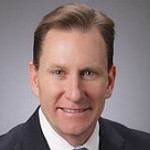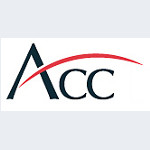Stradley Ronon announced today that patent attorney Paul K. Legaard, Ph.D., has joined the firm as a partner in its Malvern, Pennsylvania, office. He was most recently a partner at Pepper Hamilton.
In a release, the firm said Legaard, a registered patent attorney, handles all aspects of intellectual property with a focus on the pharmaceutical, nutraceutical, biotechnology, chemical, biomedical device and scientific instrumentation industries. He has experience in patent procurement, prosecution, reissues, reexaminations and appeals before the U.S. Patent and Trademark Office. He also works with clients on intellectual property due diligence matters such as inventorship and ownership analyses; portfolio analyses; and freedom-to-operate and validity searches, analyses and opinions for licensing and financing deals, the firm said.
The release continues:
“Paul’s deep patent experience, particularly in the pharmaceutical, biomedical and biotechnology industries, make him a terrific fit for our client base and our burgeoning IP group,” said Stradley Ronon Chairman William R. Sasso. “Given the critical importance to our clients of protecting and enforcing intellectual property rights, Paul’s in-depth knowledge of the patent process and the underlying sciences will allow us to strengthen and expand our scope of services.”
Legaard is Stradley Ronon’s third significant lateral hire in recent weeks. Prominent white-collar criminal defense and government investigations attorney Michael J. Engle joined the firm in December, followed earlier this month by leading financial services litigator Joe N. Nguyen.
“I was attracted to Stradley Ronon because of its entrepreneurial culture, impressive client base and strong reputation for providing pragmatic, value-driven service,” said Legaard. “The firm’s roster of talented attorneys across many practice groups and industries is a great complement to my practice and aligns well with my clients’ needs.”
Stradley Ronon’s intellectual property practice group has decades of experience protecting clients’ IP assets and handling the full scope of their IP matters, including all aspects of patents, copyrights, trademarks and trade secrets. The group’s attorneys regularly assist clients with drafting and prosecuting U.S. or international patent and trademark applications; filing copyright registration applications; conducting due diligence reviews and analyses; providing infringement and validity legal opinions; managing trade secret matters; IP trial level and appellate level litigation; IP alternative dispute resolution; portfolio strategy development and counseling; licensing; and protecting IP assets or avoiding the IP rights of others.
The Legal Intelligencer named the firm’s IP group a finalist in the publication’s first-ever “Best Law Firm Corporate Practices” awards, noting that the practice has “grown quickly and confidently.” Stradley Ronon’s IP client roster boasts a diverse range of successful companies, including Air Products, Martin Guitar, Pentech and Titan Spine.
“Paul is highly regarded within the IP bar for his experience with the biotechnology and pharmaceutical industries, and we are proud to welcome him to the firm,” said Stradley Ronon Intellectual Property Practice Group Chair Kevin R. Casey. “His addition furthers our strategic plan of growing our IP practice with high-quality lawyers who are dedicated to protecting and defending the IP rights of our clients.”
Legaard received his B.A. in biology and chemistry from Gustavus Adolphus College, his Ph.D. in molecular microbiology and immunology from the University of Missouri, Columbia, and his J.D. from Temple University Beasley School of Law.
Join Our LinkedIn Group
 A Dallas constitutional law attorney says President Trump’s temporary ban on immigrants and refugees at airports nationwide is extreme, but not without historical precedent, according to a post published by Androvett Legal Media & Marketing.
A Dallas constitutional law attorney says President Trump’s temporary ban on immigrants and refugees at airports nationwide is extreme, but not without historical precedent, according to a post published by Androvett Legal Media & Marketing.






